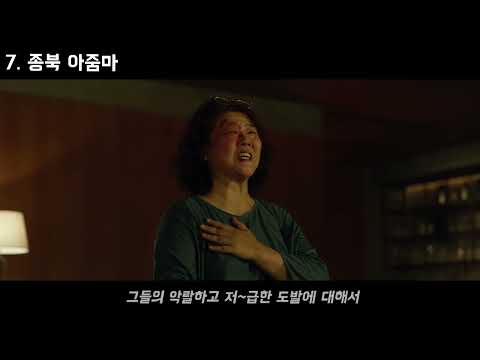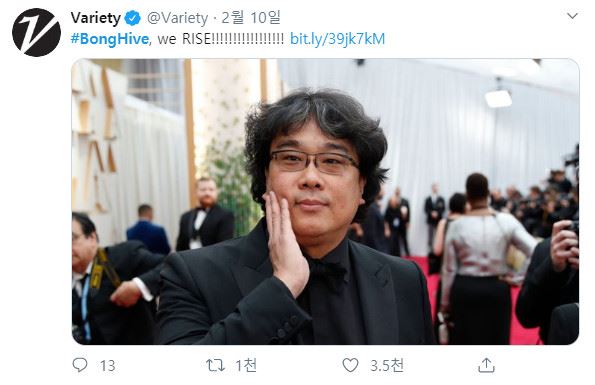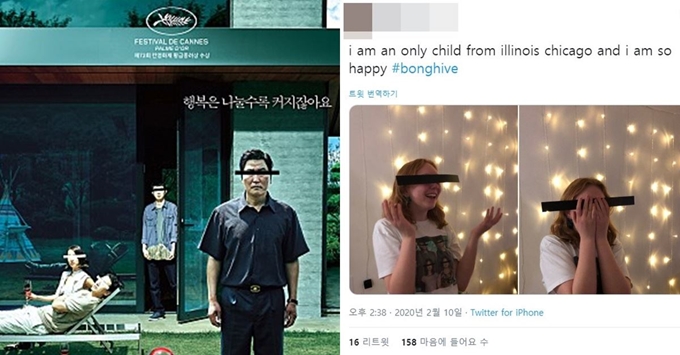기생충 명대사
1. 강력한 인물구성을 강조하는 명대사
기생충은 상대적으로 작은 규모의 가족이 상대적으로 큰 고급 주택에서 살아가면서 벌어지는 이야기입니다. 이 가운데 가장 중요한 인물은 재앙이라는 사회 구조를 받아들인 집안의 존재한 식구입니다. 그녀가 남긴 “자신이 무엇인지 잘 모르면, 자신이 속한 것도 모르기 마련이다”는 대사는 이번 영화의 지도자적인 존재라는 것을 강조합니다. 이런 임팩트 있는 큰 명대사는 영화의 전반적인 분위기를 강화시킵니다.
2. 이미지와 스토리텔링의 혼합으로 제시되는 특색적인 명대사
선생님의 “지극히 평범한 집안, 그 집안에서도 try to understand”라는 대사는 이미지와 스토리텔링의 혼합으로 표현되는 좋은 예입니다. 이 대사는 오랜 시간동안 기생충이 대중에게 사랑되고 있을 것임을 예측하는 역할을 합니다.
3. 불안과 격차감으로 표현되는 명대사
기생충은 현실적인 비극적인 내재감이 드러나는 작품입니다. 아버지 자식이 함께 열심히 일하면서도 동시에 가정 내에서도 집안을 지키려는 노력을 하면서 일어나는 불안감과 격차감 등은 다양한 대사에서 드러나게 됩니다. 예를 들어, 오리의 “먹이 없으면 굶어 죽을 것이다”라는 말은 한편으론 오리의 상황을 조용히 이야기하기 위한 다양한 대사 중 하나입니다.
4. 실명과 비유 등 다양한 표현방식을 통해 키워드 전달하는 명대사
기생충은 새로운 사회 자본론적인 구성과 불균형이 들어있습니다. 여기에는 “바보들도 살기 위해 필요한 배려”와 같이 비유적인 말들이 많이 사용됩니다. 이런 키워드들을 효과적으로 전달하려면 영화에서 사용하는 다양한 방법들을 사용할 수 있습니다.
5. 현실 사회 비판을 드러내는 명대사
기생충은 현 대한민국 사회를 비판하고 반성하는 작품입니다. 이런 사회 비판을 드러내는 대사는 수많은 대사 중에서도 “이것이 최상급 대학이다”라는 대사가 대표적입니다. 이 대사는 특정 계급과 권력 구조를 비판하면서, 이제 막 발전하려는 대한민국 경제 구조와 국가 발전에 대한 경시와 모욕으로 완벽하게 연결됩니다.
6. 중요한 교훈을 담은 명대사
기생충은 참으로 유익한 영화입니다. 가족 구성원 간의 관계에 대해 다양한 교훈들이 나타나고, 모든 일에 대한 다양한 가치 판단 기준들이 드러납니다. 이런 교훈을 담은 대사 중에서는 “생활의 기본”이라는 대사가 전형적입니다. 이 대사는 영화 내에서 여러 번 언급됩니다.
7. 캐릭터의 관계와 감정을 드러내는 명대사
기생충 영화에서는 여러 개의 캐릭터들이 등장합니다. 그들 각각이 가지고 있는 희생과 감정, 서로간 조언 등 많은 것들을 표현하고 있습니다. 이런 부분에서 캐릭터의 관계와 감정을 나타내는 대사는 매우 중요합니다. 그 중에서도 “당신이 내 삶에서 가장 존경하는 사람입니다”라는 대사는 기존브릿지의 키워드에 해당합니다.
8. 다양한 언어로 해석 가능한 선율적인 명대사
기생충 역시 상당한 수정이 이루어진 작품입니다. 그러나, 그녀의 “그것과 별개로 버틸 것이 많아졌다.”라는 대사는 단어 그대로 이해할 수 있을 뿐만 아니라 그녀의 상황과 마찬가지로 많은 소리들이 들려오는 현실 사회에서도 이해될 수 있는 선율적이고 통찰력이 있는 대사 입니다.
9. 서사 속 인물의 성장과정을 설명하는 명대사
기생충의 인물들은 서로 다른 요소를 계속해서 추구해나가는 과정에 있습니다. 그래서 이들이 어떻게 성장해나가는 지를 아름답게 이야기하는 대사도 매우 중요합니다. 선생님의 “보이려고 나온 건 내 이상한 버릇이었지” 라는 대사가 그 중 하나입니다. 이유불문하고 그가 처음으로 말하는 이번 대사는 가장 감동적으로 남는 명대사 중 하나입니다.
10. 마무리에 담긴 의미를 포착할 수 있는 명대사
마지막 대사는 기대감과 동시에 궁금증과 불안감을 섞은 대사입니다. 영화보다 결말의 긴장감이 더 높은 금잔 따위의 수정들을 활용한 해결책은 사랑스러움과 신중함으로 완성되었으며, 주인공들이 소년과 만났을 때 그녀가 남긴 “파티가 끝나기 전에 버려진 놈들은 뭘 할까요?”라는 문장은 기생충의 결말을 정확히 예상하지 못하게 만듭니다.
기생충의 명대사에서 가장 유명한 것은 송강호가 말한 “꼭대기에서 나는 느낌….짜릿해!”입니다. 이 대사는 많은 논란을 커버하는 대사로 여겨집니다. 또한, 임부정란에서 술자리를 야시하는 영상에서 보여지는 “여기에서 다이어트를 해라”라는 대사도 큰 선명함을 갖고 있습니다.
기생충은 대한민국의 값진 문화 자산입니다. 그리고 이들 중 명대사들은 이 작품의 대한민국 문화적으로 성숙한 산물임을 보여줍니다. 기생충을 볼 때마다 영화 내부에서 어떤 대사들을 발견할 수 있을지 궁금해집니다. 매번 새롭게 알아가는 것이 많은 대사들입니다.
FAQs
Q: 기생충 영화를 아직 안 봤는데 명대사를 봐도 이해가 잘 안 가요.
A: 기생충은 대한민국 사회 구조와 가족 구성원들의 관계를 다루는 작품입니다. 이 작품은 여러 가지 주제를 다루고 있기 때문에, 영화를 먼저 보시고 명대사를 다시 한 번 읽어보시는 것이 추천됩니다.
Q: 기생충 영화에서 가장 유명한 명대사는 무엇인가요?
A: 기생충의 대표적인 명대사는 송강호가 말한 “꼭대기에서 나는 느낌….짜릿해!”입니다.
Q: 기생충 영화에서 가장 감동적인 명대사는 무엇인가요?
A: “보이려고 나온 건 내 이상한 버릇이었지”라는 대사가 그 중 하나입니다.
Q: 기생충 영화에서 캐릭터 간의 갈등을 나타내는 명대사는 어떤 것이 있나요?
A: “당신이 내 삶에서 가장 존경하는 사람입니다”라는 대사가 그에 해당합니다.
Q: 기생충 명대사에서 해석하기 어려운 부분이 있을까요?
A: 특정 대사들은 영화에서 나오는 장면과 상황을 반드시 이해해야만 한다는 것이 기억됩니다. 대개 이런 것들은 여러 번 영화를 보면 지참은 됩니다.
사용자가 검색한 키워드: 기생충 명대사 기생충 송강호 운전 대사, 기생충 코너링 대사, 기생충 무계획 대사, 오징어게임 명대사, 영화 명대사, 기생충 대본, 기생충 마지막 대사, 기생충 명장면
Categories: Top 67 기생충 명대사
1분 기생충 명대사 모음
여기에서 자세히 보기: future-user.com
기생충 송강호 운전 대사
The Scene
In the scene in question, Ki-taek and his son, Ki-woo, have just pulled off a scheme to infiltrate the wealthy Park family. Ki-woo has secured a job as a tutor to their daughter, and the rest of the Kims posing as unrelated but equally qualified professionals have been employed by the Parks. While the Parks are away on a camping trip, the Kims take advantage of the empty house and proceed to indulge in luxuries they could never afford on a daily basis. In the midst of this, the Parks suddenly call and ask their driver, whom the Kims had earlier pushed out of the job, to pick them up from the train station. In a panic, the Kims devise a plan for Ki-taek to pretend to be the driver and pick up the Parks without arousing suspicion.
The Drive
After donning a suit and tie to look the part, Ki-taek takes the wheel of the Park family’s expensive Mercedes-Benz and embarks on the drive. The tension in the car is palpable as the family gives their instructions and asks probing questions. Ki-taek’s nervousness is evident, but he manages to maintain his composure and convincingly play the part of a professional driver. He takes sharp turns with ease and adeptly parallel parks the car, all while keeping up his facade. However, just as the family approaches their home, a sudden downpour springs up, and the car is forced to stop and wait it out. While they wait, Ki-taek sits silently behind the wheel, staring straight ahead, and the conversation among the passengers takes a startling turn.
The Significance
This scene is incredibly significant in many ways. Song Kang-ho’s delivery of Ki-taek’s lines is incredibly nuanced and captivating, highlighting the character’s struggle to reconcile his societal position with his innate talents. Ki-taek is a man who is down on his luck but is intelligent and capable of much more than just menial work. In this scene, he is forced to put on a mask and pretend to be someone he is not to achieve his goals. Despite his nervousness and lack of experience, he is able to fake his way through the encounter, using his instincts, and making the necessary gestures to convince his passengers that he is a skilled driver. He takes his job seriously, focusing hard on the road and his surroundings while still trying to play the polished driver role he created.
The underlying message of this scene is that people should not be defined or limited by their social positions. Ki-taek is a man who is skilled at driving but is held back by his lack of education and limited employment opportunities in a society that values pedigree over capability. This scene demonstrates that when given the chance, he is capable of so much more than the work offered him, which serves to highlight the issues of socio-economic inequality in South Korea on a larger scale.
FAQs
What makes this scene so special?
This scene is very special as it perfectly encapsulates the character’s struggles to reconcile his societal position with his innate talents. Ki-taek is someone who is capable of much more than just menial work, and despite his lack of experience, he is able to fake his way through the encounter, using his instincts and making necessary gestures to convince his passengers that he is a skilled driver. Despite his nervousness, he takes the job seriously, focusing hard on the road, and his surroundings while still trying to maintain the polished driver façade he has created.
What is the significance of this scene?
The significance of this scene is multi-faceted. It is to emphasize that people should not be defined or limited by their social positions. Ki-taek is a brilliant man who is skilled at driving but is held back by his lack of education and limited employment opportunities in a society that values pedigree over capability. This scene demonstrates that he can accomplish much more than the work offered to him. This highlights social and economic inequality in South Korea on a more significant scale.
Why is Song Kang-ho’s performance so highly praised in this scene?
Song Kang-ho is praised highly for the performance in this scene for his fantastic portrayal of Ki-taek. He delivers his lines in an incredibly nuanced and captivating display, highlighting the character’s struggle to reconcile his societal position with his innate abilities. Through his work, we understand the message that is being conveyed. Song Kang-ho showcases his versatility in this scene and delivers a prominent role that amplifies the character’s “cunning trickery” and his convincing act of a professional driver.
What is the movie “Parasite” about?
Parasite is a 2019 twisted and dark drama film from South Korea; it received rave reviews from critics and won many awards. It portrays the story of a poor family, the Kims, who come up with ways to get by. The Kim family have a fabulous opportunity to work for the Parks, a wealthy family, but then things take a dark turn. Hence, the movie is highly praised for its irony, comedic vibe, thrilling suspense, and social commentary.
Final Thoughts
Song Kang-ho’s portrayal of Ki-taek in the Parasite movie is memorable and impressive. In this scene, his nuanced performance evokes empathy in the viewers for the struggles of those in low socio-economic positions. Not only this, but the scene also highlights the issue of social inequality and how capable and talented people are held back just because of their backgrounds. This reflective storyline and nuanced framing shape the point of the movie, making it a significant film to watch and an even more memorable film overall.
기생충 코너링 대사
What is the Corners Speech in 기생충?
The Corners Speech takes place when the poor, unemployed Kim family, who manage to con their way into the lives of the wealthy Park family, find out that the Parks’ previous chauffeur has tuberculosis and is living in the underground bunker of their basement. The Kim family decide to use this information to their advantage and secretly move into the bunker themselves. When the Parks go on a camping trip, the Kims take over the Park family’s luxurious home. It is during this time that the character of Ki-taek, played by Song Kang-ho, delivers the Corners Speech. He speaks to his son, Ki-woo, played by Choi Woo-sik:
“You know what kind of plan never fails? No plan. No plan at all. You know why? Because life cannot be planned. Look around you. Did you think these people made a plan to sleep in the sports hall with you? But here we are now, sleeping together on the floor. So, there’s no need for a plan. You can’t go wrong with no plans. We don’t need to make a plan for anything. It doesn’t matter what will happen next. Even if the country gets destroyed or sold out, nobody cares. Got it?”
The speech is powerful in its simplicity and serves as a critical moment of reflection for Ki-woo and the viewer. It is a metaphor for the message of the film – that in a society of haves and have-nots, desperation and survival often dictate actions over morality.
The Significance of the Corners Speech
The Corners Speech is a significant moment in the film for several reasons. Firstly, it exposes the harsh realities of society’s divide between the rich and the poor. Despite being resourceful and willing to work, the Kim family is unable to lift themselves out of poverty without resorting to deception and exploitation. They are forced to live in a basement and struggle to make ends meet while the Parks live in opulence, unaware of the Kims’ true circumstances. The Corners Speech highlights how wealth disparity creates an uneven playing field, with marginalised people forced to go to extreme lengths to survive.
At the same time, the speech also points to the unpredictability of life. Ki-taek suggests that having no plan is a better option for the family. Despite their efforts to change their circumstances through clever plotting, they find themselves in dire straits when disaster strikes. Ki-taek suggests that people have to be willing to let go of their desire for control and accept that life is unpredictable. His comment that “even if the country gets destroyed or sold out, nobody cares” emphasises his fatalistic outlook, but also highlights a feeling of powerlessness that many people face in the face of larger political and economic systems.
In addition, the Corners Speech encourages an examination of personal morality. Ki-taek’s speech pushes the viewer to ask themselves if they would be willing to make the same sacrifices as the Kims, to truly survive. It also addresses the question of who is responsible for the division between ‘haves’ and ‘have-nots’ – is it a societal issue that needs to be addressed by governments and institutions, or is it a personal moral failing that can only be addressed by individual action?
Frequently Asked Questions (FAQs):
Q: Who wrote the Corners Speech in 기생충?
A: The Corners Speech was written by Bong Joon-ho, the director of the film.
Q: Why is the Corners Speech in 기생충 significant?
A: The Corners Speech is a pivotal moment in the film that speaks to issues of social, economic and political inequality, as well as the unpredictability of life. It encourages self-reflection on personal morality and societal responsibility.
Q: Does the Corners Speech provide any solutions to the problems it raises?
A: No, the Corners Speech is not meant as a solution to the issues presented in the film. Rather, it serves as a commentary on society and a call to action to address inequality and injustice.
Q: How has the Corners Speech been received by audiences and critics?
A: The Corners Speech has been widely praised as a powerful and poignant moment in the film, with some calling it the film’s most memorable scene. It has been praised for its ability to make viewers reflect on their own lives and the world around them.
Q: What is the main message of the Corners Speech in 기생충?
A: The main message of the Corners Speech is that society is inherently unequal and unpredictable. It encourages the viewer to consider personal morality, societal responsibility and the need for change.
In Conclusion
The Corners Speech in 기생충 is a powerful moment that encapsulates the central message of the film. It highlights the stark realities of social, economic and political inequality, while also encouraging the viewer to consider their own lives and role in society. It is a powerful reminder that, despite our best efforts to plan and control our lives, ultimately, life is unpredictable and often uncontrollable. The Corners Speech reminds us to stay vigilant and continue to work towards a better, more just world, where people can truly thrive regardless of their social status.
주제와 관련된 이미지 기생충 명대사

기생충 명대사 주제와 관련된 이미지 15개를 찾았습니다.





![기생충 영화 명대사 중국어] 아들아. 넌 계획이 다 있구나. - YouTube 기생충 영화 명대사 중국어] 아들아. 넌 계획이 다 있구나. - Youtube](https://i.ytimg.com/vi/jPBv56TEEvo/maxresdefault.jpg)




![공기출 - [역대급 명장면 명대사 영어로?!] 부부의 세계♡깡♥기생충♡아내의 유혹♥도깨비♡ 해커스톡 장종훈 영스터 #8 📺💎💙 공기출 - [역대급 명장면 명대사 영어로?!] 부부의 세계♡깡♥기생충♡아내의 유혹♥도깨비♡ 해커스톡 장종훈 영스터 #8 📺💎💙](https://i.ytimg.com/vi/FxWPwC4duzA/hqdefault.jpg)


![007_[기생충]골든글로브 외국어영화상 수상_ 영화 기생충 명대사_봉준호감독 송강호주연_Prezi+PPT+루마퓨전(LumaFusion) - YouTube 007_[기생충]골든글로브 외국어영화상 수상_ 영화 기생충 명대사_봉준호감독 송강호주연_Prezi+Ppt+루마퓨전(Lumafusion) - Youtube](https://i.ytimg.com/vi/hgeWEa9Mc9s/maxresdefault.jpg)











![영어 회화, 영어 공부] 기생충 명대사 너는 다 계획이 있구나 Chapter 16. 특별코너 (Feat, 진PD) - YouTube 영어 회화, 영어 공부] 기생충 명대사 너는 다 계획이 있구나 Chapter 16. 특별코너 (Feat, 진Pd) - Youtube](https://i.ytimg.com/vi/zFa3sz9XalI/hqdefault.jpg)
![Pgr21 - [서브컬쳐] 영화 '기생충' 사모님 사랑하시죠?' 의미 Pgr21 - [서브컬쳐] 영화 '기생충' 사모님 사랑하시죠?' 의미](https://i.ytimg.com/vi/VQmfMJ7t0Zg/maxresdefault.jpg)

![삶의 향기] 구체적 메시지를 자제한 '기생충' | 중앙일보 삶의 향기] 구체적 메시지를 자제한 '기생충' | 중앙일보](https://pds.joongang.co.kr/news/component/htmlphoto_mmdata/202010/13/ae3d50ae-bd6c-4f13-b70c-4715f27d87c8.jpg)

![챌쌤's 칠판한국어] 한국영화 '기생충' 속 명대사, 절대 실패하지 않는 계획이 뭔 지 아니? 무계획이야. (Do you know what kinds of plans never fail? NO PLAN )┃언어문화NGO 조인어스코리아 챌쌤'S 칠판한국어] 한국영화 '기생충' 속 명대사, 절대 실패하지 않는 계획이 뭔 지 아니? 무계획이야. (Do You Know What Kinds Of Plans Never Fail? No Plan )┃언어문화Ngo 조인어스코리아](https://i.ytimg.com/vi/1a3vFumTk8o/maxresdefault.jpg)



Article link: 기생충 명대사.
주제에 대해 자세히 알아보기 기생충 명대사.
- 한국영화 기생충 명대사 모음 – 네이버 블로그
- 영화 기생충 명대사 영작 – 아기뼝아리의 소소한 일상
- 네티즌들이 선정한 ‘기생충’ 명대사 모음 (스.포.주.의.) | 디스패치
- 기생충(영화) – 나무위키
- #기생충명대사 – Explore | Facebook
- 냄새가 선을 넘지 : 기생충 줄거리, 명대사, 감상평 – 티아 – 티스토리
- 영화 기생충 명대사에서 배울 수 있는 삶의 지혜가 있다
- 부자, 관상, 기술 – Kết quả Tìm kiếm Sách của Google
더보기: future-user.com/wki
Trả lời